
Category: All Events



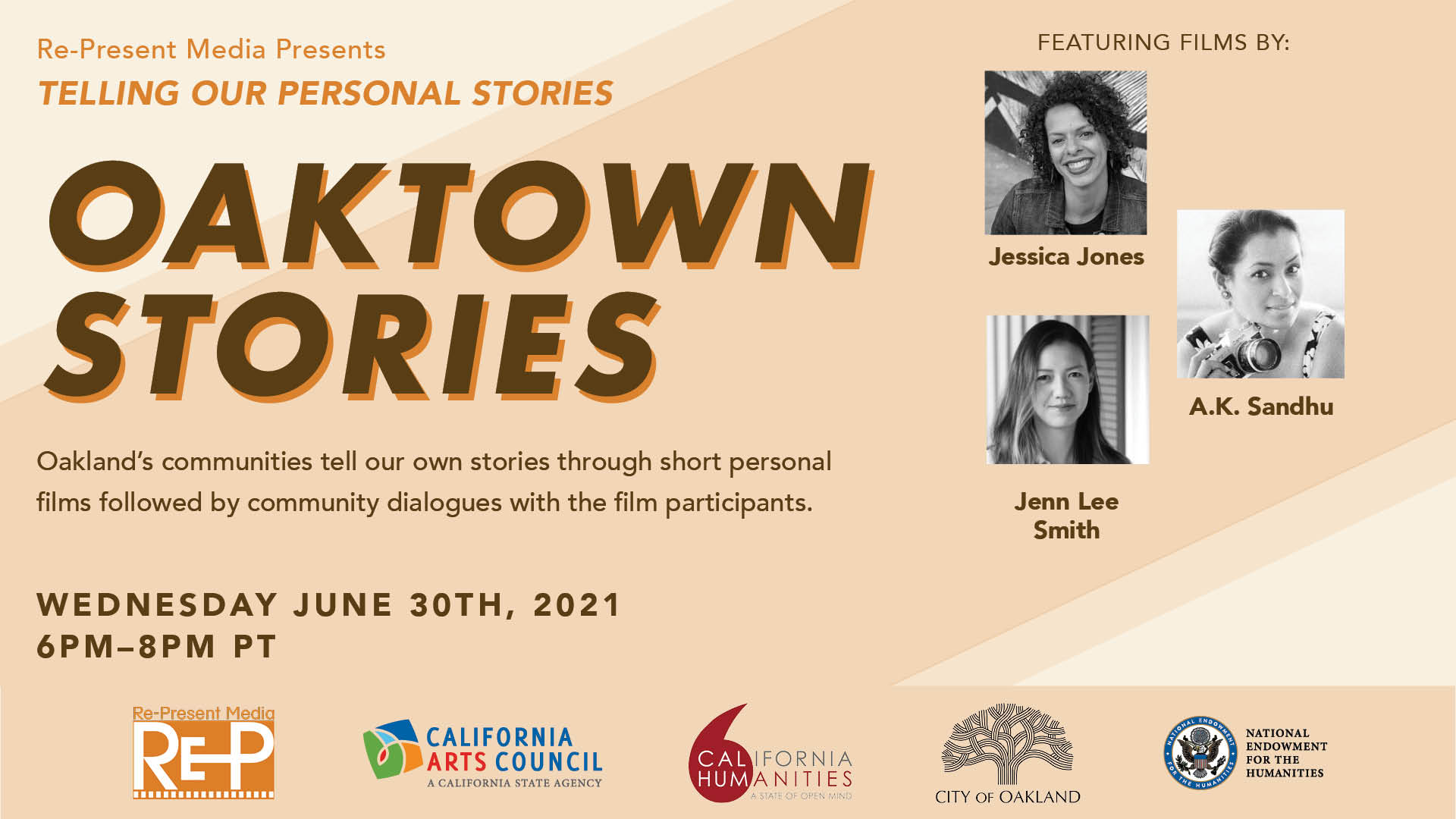
Re-Take Oakland filmmakers Jessica Jones, Jenn Lee Smith, and A.K. Sandhu presented three films. With their guest speakers and community partners, they held a community discussions relating to the contributions of black women to Oakland with our audience members.
Women Who Ride (Jessica Jones) shared an intimate portrait of D’Vious Wayz, Oakland’s first black women’s motorcycle club, as they come together to build a community around their passion for riding. This sneak peak introduced the themes and characters that will appear in a longer film slated to finish this fall. Guest speaker Frankie “Tish” Edwards spoke on black women creating a positive space for themselves.
Queen of the Court (Jenn Lee Smith) introduced Cheri King, a tennis tournament director and coach, as she teaches students the art of tennis and shares ways it may bridge socio-economic gaps. Guest speaker Cheri King spoke on how tennis can be empowering for black and brown youth.
For Love and Legacy (A.K. Sandhu) followed Dana King and Fredrika Newton as they create the first public art sculpture honoring Huey Newton, co-founder of the Black Panther Party, and how they reconcile their mixed-race identity. Guest speakers Dana King and Fredrika Newton of the Dr. Huey P. Newton Foundation spoke on the importance of women’s contributions to community building and social justice movements.
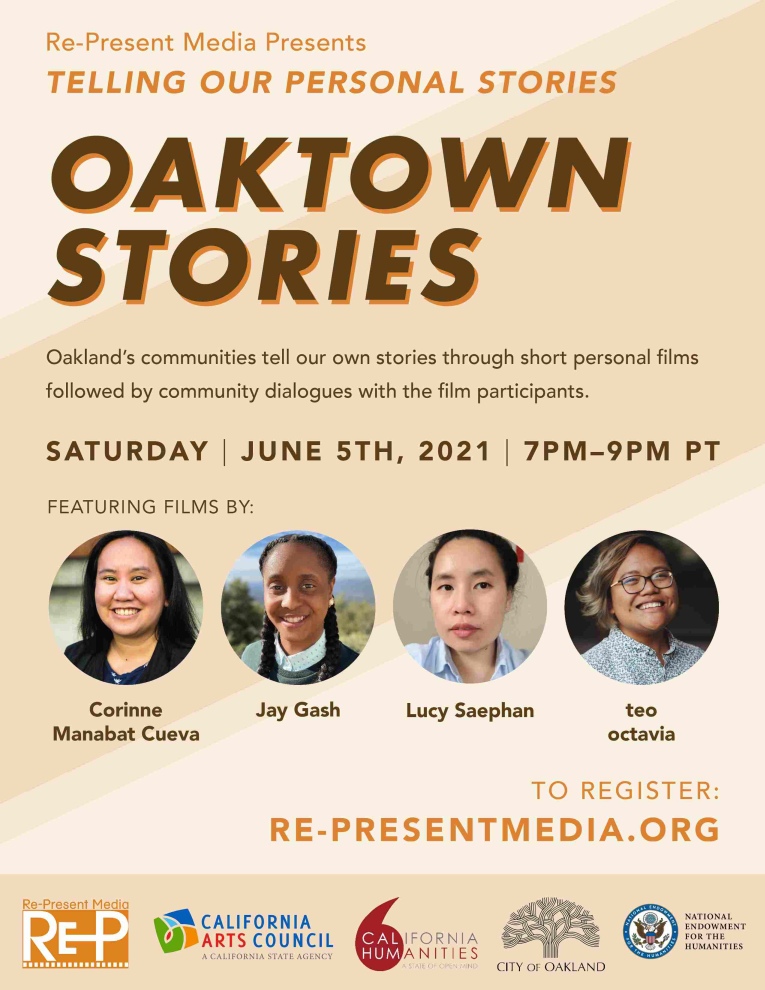
Re-Take Oakland filmmakers Corinne Manabat Cueva, Jay Gash, Lucy Saephan, and teo octavia presented four films. With their guest speakers and community partners, they held deeply engaging discussions relating to the personal stories of Oaklanders with audience members.
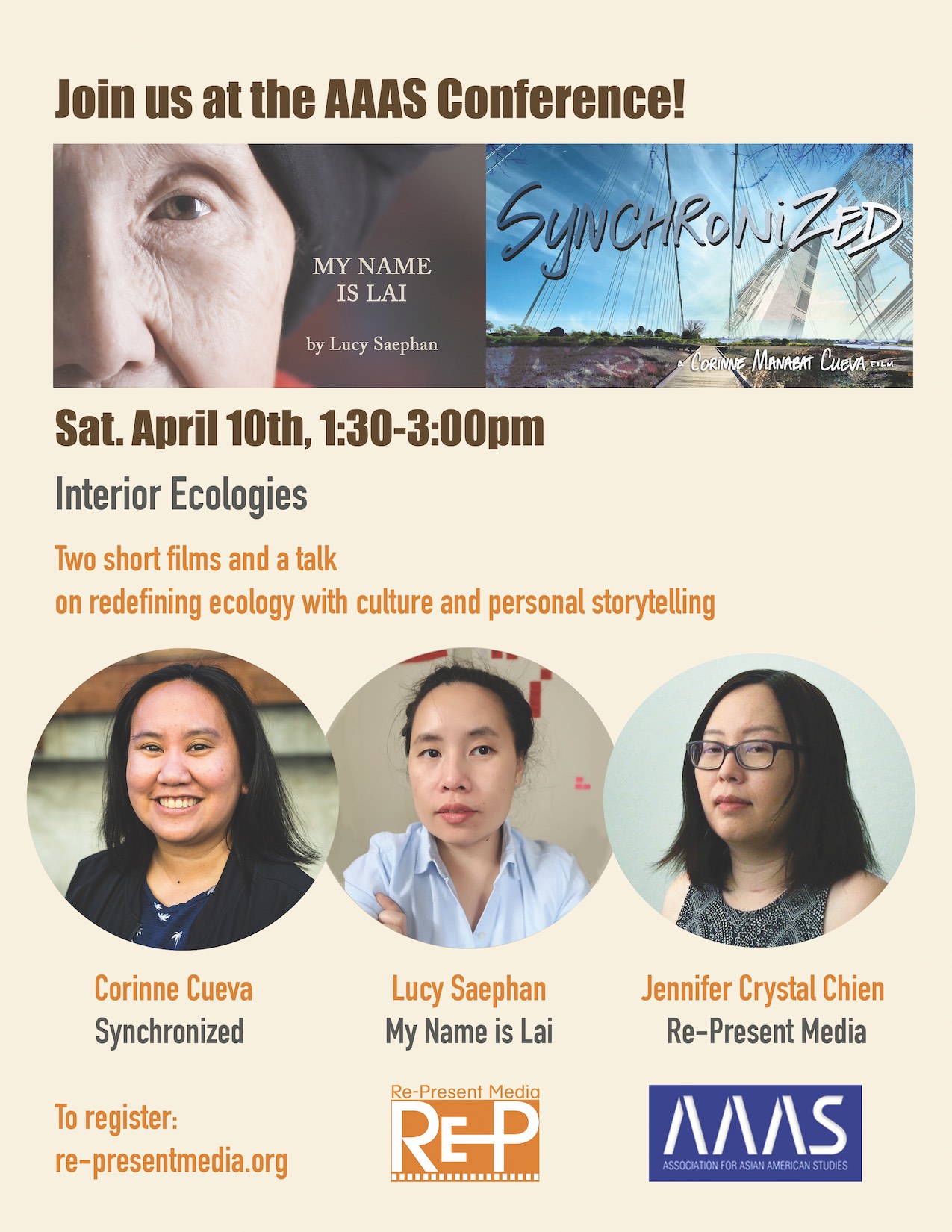
Re-Take Oakland filmmakers Corinne Manabat Cueva and Lucy Saephan discussed the relationship between culture, ecology, and personal storytelling at the 2021 AAAS conference. They screened their two new short films: My Name is Lai, featuring Lucy’s Mien grandmother talking about her experiences of life, and Synchronized featuring women of color discussing their relationship to living in Oakland.
![[Event poster]](https://re-presentmedia.org/1638778237173/wp-content/uploads/2020/11/Event3_Posterv4_sm.jpg)
We heard about two online subscription streaming platforms that feature intersectional content made by BIPOC filmmakers. Sisterhood Media TV streams short films by filmmakers telling their stories about queerness, accessibility, race, gender, culture, class, and more, while working towards a better future. Open Television focuses on artist development, community development, and research in developing their online series and films. Partners have included HBO, Tribeca Film Festival, and Museum of Contemporary Art, Chicago.
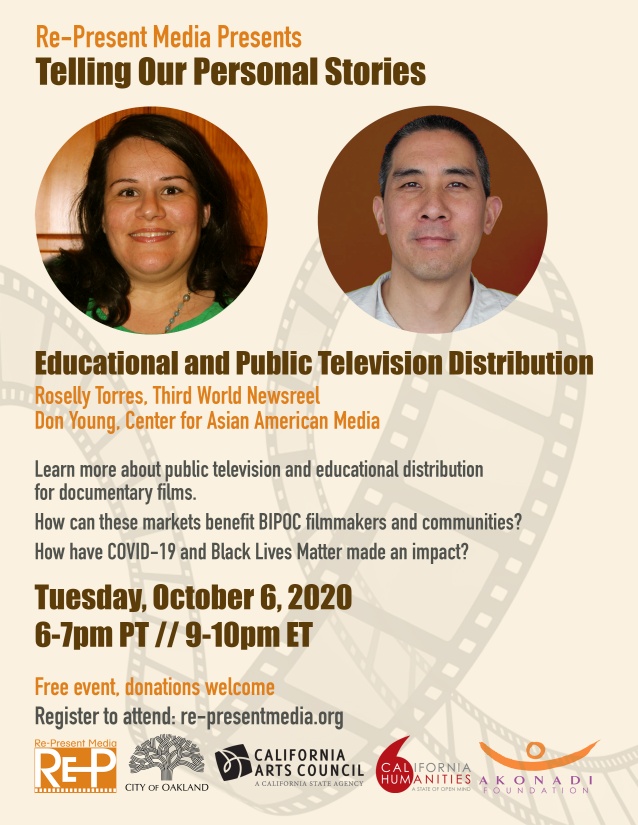
We heard from two long-time industry folks on how educational and public television distribution are changing for BIPOC filmmakers given the impact of the pandemic and the push for social change in the industry since the Black Lives Matter movement has gained new urgency.
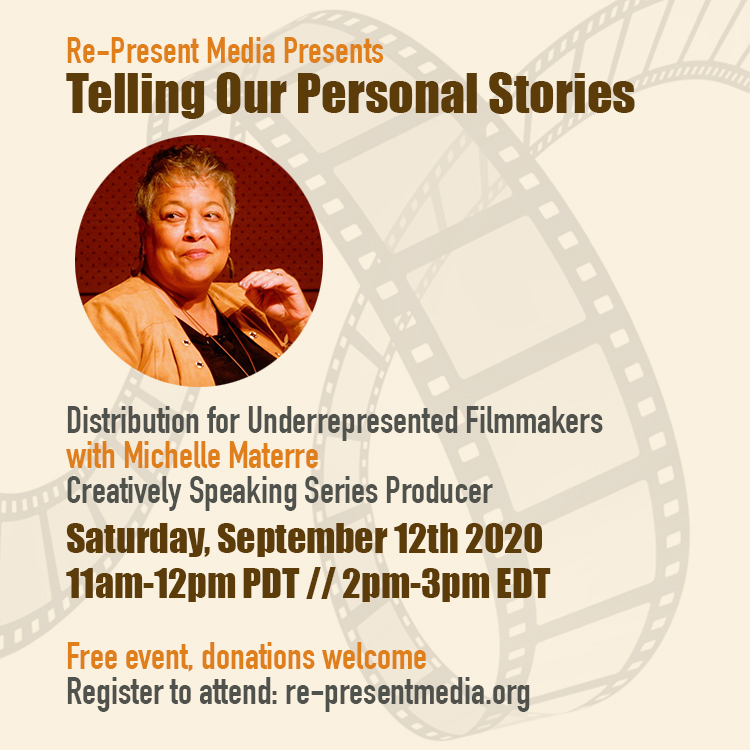
Michelle Materre shared insights with us about her perspective on distribution from her decades of experience, especially in light of the pandemic and impact of the Black Lives Matter movement. Michelle is best known for role as producer and host of the Creatively Speaking film series in New York City, which won a Film Heritage award from the National Society of Film Critics. Her early work included distributing the seminal films Daughters of the Dust (1991) by Julie Dash and L’Homme Sur Les Quais (1992) by Raoul Peck with her company KJM3 Entertainment Group.
![[Little White Lie]](https://re-presentmedia.org/1638778237173/wp-content/uploads/2020/05/LaceyPoster2.jpg)
Little White Lie is a personal film about how the filmmaker came to terms with being raised as a white Jewish girl after discovering that her biological father was black.
Reflections by Sherry Chiang
![{Jennifer and Lacey]](https://re-presentmedia.org/1638778237173/wp-content/uploads/2020/05/0_19_667_400_lacey-300x180.jpg) The documentary Little White Lie (2014), conceptualized and directed by filmmaker Lacey Schwartz Delgado, raises many questions related to identity and shifts in self-perception. Following the screening event on August 18th, 2019 at the East Bay Community Center, she interacted with the audience, discussing perspectives on denial and acceptance.
The documentary Little White Lie (2014), conceptualized and directed by filmmaker Lacey Schwartz Delgado, raises many questions related to identity and shifts in self-perception. Following the screening event on August 18th, 2019 at the East Bay Community Center, she interacted with the audience, discussing perspectives on denial and acceptance.
First, Schwartz described how the concept of the film evolved. Little White Lie, she explains, shifted from a documentary focusing on an issue-based film about Jewish and black communities in 2002 to a deeply personal work when filming began in 2006. “What is the beginning, middle, and end [of the film],” Lacy said, becomes informed by shifts in self-perception. This relates to a bigger notion of the social construct race, where there is a choice between focusing on big societal issues versus individual familial structures. Lacey mentions that struggles around race are often experienced interpersonally, such as within families, instead of through overarching societal issues.
Lacey Schwartz, within Little White Lie, identifies as a black woman. When questioned by an audience member on whether her self-identity was exclusive or non-exclusive, specifically relating to Lacey’s origins of being born half Jewish, she says that while identifying as Jewish and black now, identities are fluid and that race is defined by perceptions of people.
While interviewing people after the question and answer session, I found out that another volunteer experienced a similar hiding and denial of identity. She, like Lacey, realized she had a different father following the beginning of college, yet she does not discuss the issue with her mother due to the cultural shame or stigma her mom would face, internally and externally. From other audience members, I found several second timer viewers of the film, and that Little White Lie became of personal significance to them because of its resonance with their stories.